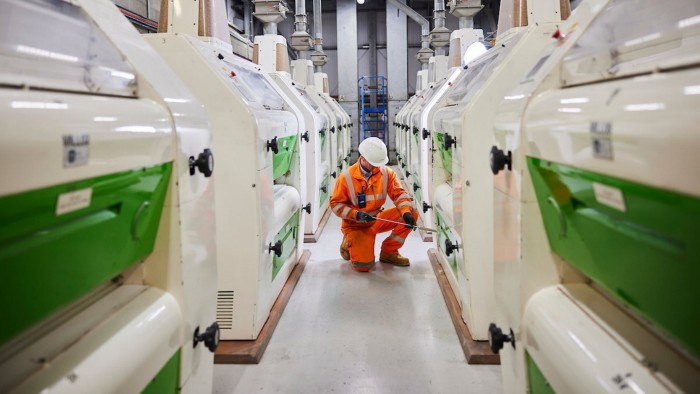Unlock the Editor’s Digest for free
Roula Khalaf, Editor of the FT, selects her favourite stories in this weekly newsletter.
Associated British Foods has upped the stakes in its stand-off with the UK government over the future of the country’s largest bioethanol plant, as a new trade pact with the US threatens to flood the market with tariff-free ethanol.
The grocery and retail conglomerate said on Thursday that it had entered formal negotiations with officials over the future of the Vivergo biofuel business, and had launched a consultation with employees to effect a “wind-down” of the facility in case those talks failed.
“Unless the government is able to provide both short-term funding of Vivergo’s losses and a longer-term solution, we intend to close the plant once the consultation process has completed and the business has fulfilled its contractual obligations,” ABF said.
The £450mn Vivergo plant in Saltend, Hull, is one of two bioethanol plants in the UK, which produce green fuel used in the E10 blend of petrol, as well as animal feed and CO₂, which is used in the soft drinks and meatpacking industries. ABF owns the plant through its sugar division.
The Vivergo plant employs 160 people and, alongside the UK’s other major bioethanol plant owned by Ensus, in Teesside, supports a further 5,000 jobs in downstream supply chains.
ABF warned that if the two sides failed to reach a solution, the plant would close by September 13. The company has already stopped its purchase contracts for wheat — the key feedstock for the plant. The update on Thursday comes after ABF issued the government an ultimatum earlier in June, demanding a rescue package within two weeks to avoid making plant workers redundant.
A spokesperson for ABF said the company welcomed the government’s decision to launch formal negotiations over the future of the Vivergo business. “This process will conclude with a major decision, which will depend on whether the negotiations deliver a credible route towards securing the plant’s profitable future.”
A government spokesperson said it was “disappointing to see this announcement after we entered into negotiations with the company on financial support yesterday”.
They added: “We will continue to take proactive steps to address the long-standing challenges the company faces and remain committed to working closely with them . . . to present a plan for a way forward that protects supply chains, jobs and livelihoods.”
In a “prosperity deal” signed with US President Donald Trump on May 8, the UK agreed a 1.4bn litre tariff-free quota for US ethanol, which is equivalent to the total annual demand for bioethanol in the UK.
The announcement blindsided the industry, which was already struggling to compete against cheap bioethanol imports, as well as regulation introduced in 2022 that doubled up subsidies for ethanol produced from waste products, benefiting ethanol produced from US corn.
In a recent interview with the Financial Times, Paul Kenward, chief executive of ABF Sugar, said he would no longer support monthly £3mn losses at the plant and that investors “have had enough”.
Ensus said it had received a letter from business secretary Jonathan Reynolds acknowledging the economic difficulties it faced as a result of the US trade deal.
It said: “Ensus and the wider UK bioethanol industry have a significant part to play in helping the government grow the economy, support local and UK supply chain businesses,” adding it was looking forward to “working with the government urgently on this matter”.






